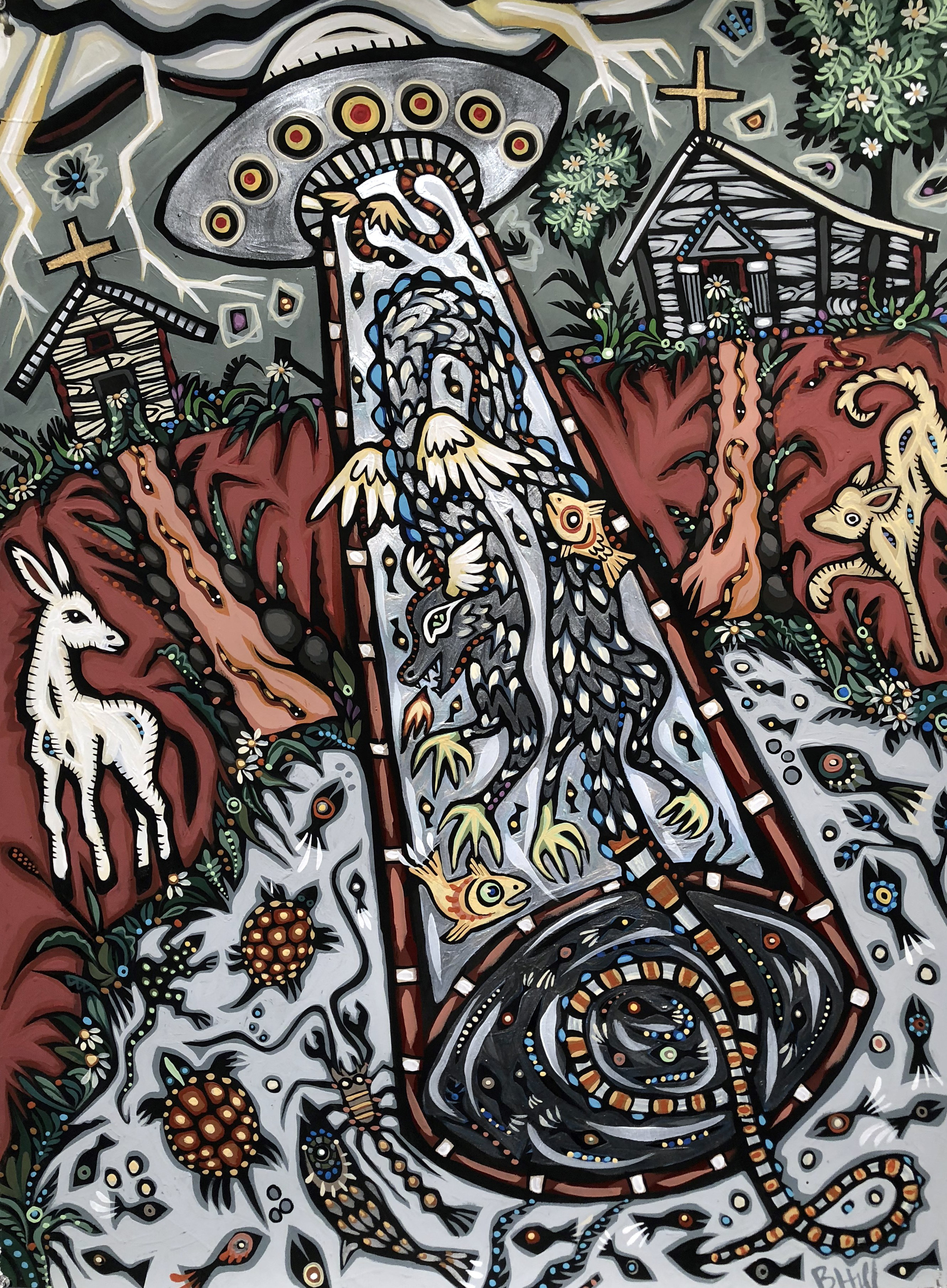
Raye Hendrix
The Cookout
We watch it grow, a backwards river:
wildfire creeping up the mountain,
smoke stretching its thin fingers
toward us over the valley—
Birmingham burning
electric below, hazy,
blurred—fairy lights
mooning in gauze.
On the opposite
mountain’s ridge, I
help my father strike
a match—cup my hands
around the sparks the wind
spares no thought for—to light
the grill. It feels so good, believing
nothing like that could ever happen to us.
Apology-Ode to My Accent
sweetslow as sorghum
vowels gorgeous peaches fuzzing
in the mouth
thick as a thicket of kudzu
smooth as buttered grits
bright hot iron of Birmingham
soft without the g
(it’s fuckin charming
how I differentiate my pens and pins:
ink pen
stick pin
pen for a rooster or dog)
language lush & low in the throat
magnolias tossing their heavy blooms in the breeze
(forgive me my shame, those years
of trying to outrun the honeygold shape
you make of my tongue)
The Epithets of Local Shells
That was the night my mother burned
my father’s birthday dinner.
But let me start again.
My mother’s hands were small,
barely large enough to hold.
But she could hold shells, so that night
I brought her what I’d found in the river,
the hard skins of mussels. I gave them
reverently as treasure, the empty husks
opening like lungs or cartoon hearts
in the soft bowl of her palm, crude
calcium butterflies beautiful only
to me and her. She taught me their names.
These pale ones are Pink Mucket. These
are Pigtoes. The black ones are called Heelsplitters.
They’re the ones your father hates.
While dinner cooked she pooled
me in her lap. That was the year my father
worked late every night but not
because he wanted to. That was the year
there were layoffs and he needed to prove
his worth, because we didn’t have much money
and my mother couldn’t find a job.
But that’s not what she told me.
That year my father’s birthday fell in the middle
of the week, and he didn’t make it home
in time to eat. My mother touched a mussel,
shell worn to iridescence. She told me,
This one is my favorite, Painted Creekshell.
And the kitchen began to slowly fill with smoke.
The Sound of Nearing Trains
Weeks later, and my father is still
finding remnants of the neighborhood
and other nearby neighborhoods
in the low thick shrubs of butterfly
bush and rosemary in the yard
he’s spent so long curating.
Pruning, he finds odd growths of rough
-speckled gray shingle, insulation
bubblegum-pink and wrong tangled
in the herbs. The tornado missed
them, just barely, an act of God or
geographic luck, but below in the valley
blue tarps flood what once were houses
with windows that sparkled like left-up
Christmas lights at dusk.
After the storm, when I called to be sure
they were safe, he told me when he heard
the howl of sirens, my mother was shuffling
idly through the house in socks, eating
a fast-food salad, having only just returned
from an appointment in the city; and
not wanting to alarm her, he gently pulled her,
oblivious, to the closet, where he thought
they would die, and he was content
to sit in the flashlighted dark and watch her eat.
Coming Home
Sunset at Railroad Park and the city
is baring its teeth: overpass and oak
the jagged jawbones of carnivores,
black against red sky, skyscrapers
silvery windows throwing back
shadow and light. Cranes stretching
long necks to heaven, this place always
building, going up.
I walk with Jake around what once was
a viaduct, symbol of progress, now
collapsed into a man-made lake, and
the city begins to glow from within,
a man-made heart, a buzzing nerve.
He tells me he keeps trying to leave but
it won’t stick, Birmingham’s canines
biting his coattails like a starved dog
scenting a scrap of food.
It’s violent—this animal, its long-throated
history, insatiable gut. But Jake isn’t
bitter; he lets the city swallow him whole.
He says he’s been hungry before,
knows what good a little food, some
small kindness, can do. Besides—we were
children here. This is where we learned
that a place can break your heart.
We were always meant to come home.
Raye Hendrix, currently a PhD candidate at the University of Oregon, is the author of the chapbooks Every Journal is a Plague Journal (Bottlecap Press) and Fire Sermons (Ghost City Press).
